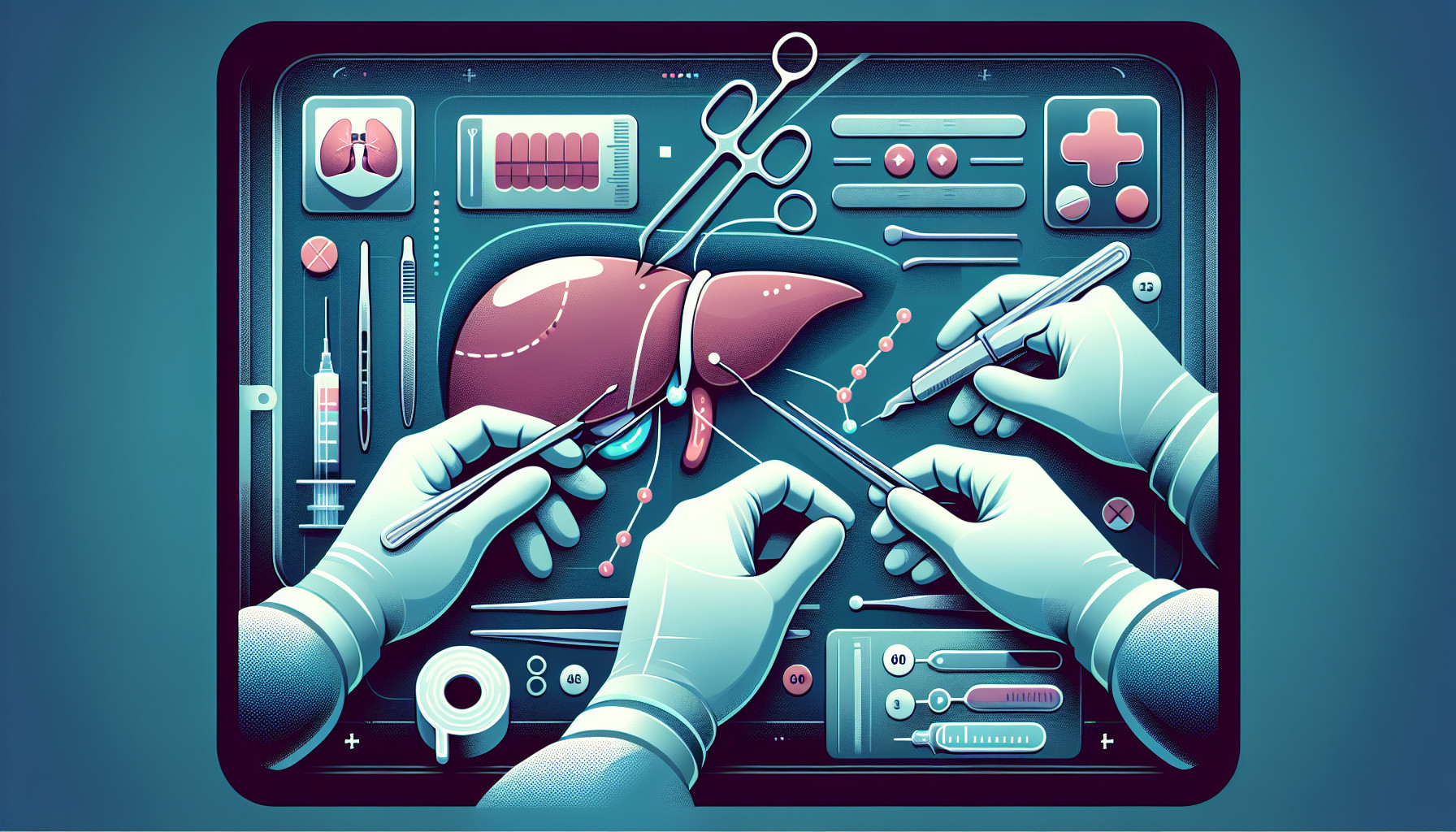Our Summary
This research paper compares two methods of guiding a liver biopsy (a procedure where a small piece of the liver is removed for examination): regular ultrasound (US) and contrast-enhanced ultrasound (CEUS). The researchers looked at various studies on these methods, and analyzed the data using special software.
The results showed that CEUS was more accurate in diagnosing liver diseases than US, with a success rate of 38% compared to 36.4% for US. Also, CEUS was more successful in determining the exact disease (pathological diagnosis) with a rate of 95.6% compared to 90.5% for US.
In simpler terms, the study suggests that CEUS is a better method for guiding liver biopsies and diagnosing liver diseases than the traditional ultrasound method.
FAQs
- What are the two methods of guiding a liver biopsy compared in this research paper?
- According to the research, which method - regular ultrasound or contrast-enhanced ultrasound - is more accurate in diagnosing liver diseases?
- How does the success rate of determining the exact liver disease differ between regular ultrasound and contrast-enhanced ultrasound?
Doctor’s Tip
A helpful tip a doctor might tell a patient about liver biopsy is to discuss the option of using contrast-enhanced ultrasound (CEUS) for guidance during the procedure. CEUS has been shown to be more accurate in diagnosing liver diseases and determining the exact disease compared to regular ultrasound. This can lead to a more successful and precise diagnosis, ultimately leading to better treatment options. It is important for patients to have an open discussion with their healthcare provider about the best method for their specific situation.
Suitable For
Patients who are typically recommended for a liver biopsy include those with suspected liver diseases such as liver cirrhosis, hepatitis, fatty liver disease, autoimmune liver diseases, liver cancer, and other liver abnormalities. Additionally, patients with abnormal liver function tests, unexplained jaundice, or suspected liver masses may also be recommended for a liver biopsy. Ultimately, the decision to perform a liver biopsy is made by a healthcare provider based on the patient’s medical history, symptoms, and diagnostic test results.
Timeline
Before a liver biopsy:
- The patient’s doctor will discuss the reasons for the biopsy, any potential risks or complications, and obtain informed consent.
- The patient may need to undergo blood tests or imaging studies to assess the liver’s health and determine the best approach for the biopsy.
- The patient may be instructed to stop taking certain medications, particularly blood thinners, before the procedure.
- On the day of the biopsy, the patient will be asked to fast for a certain period of time before the procedure.
After a liver biopsy:
- The patient will be monitored for a few hours to ensure there are no immediate complications such as bleeding or infection.
- The patient may experience some mild discomfort or pain at the biopsy site, which can be managed with over-the-counter pain medications.
- The patient will be advised to avoid strenuous activities and heavy lifting for a few days following the procedure.
- The biopsy sample will be sent to a laboratory for analysis, and the patient will follow up with their doctor to discuss the results and any further treatment options.
What to Ask Your Doctor
- What is the purpose of the liver biopsy?
- What are the potential risks and complications associated with the procedure?
- How will the biopsy be performed and what should I expect during the procedure?
- How long will it take to get the results of the biopsy?
- How accurate is the method being used to guide the liver biopsy (regular ultrasound or contrast-enhanced ultrasound)?
- What specific liver diseases or conditions can be diagnosed with this biopsy?
- Are there any alternative methods for diagnosing liver diseases that should be considered?
- How will the results of the biopsy impact my treatment plan?
- Are there any specific post-biopsy care instructions that I should follow?
- Is there anything else I should know or consider before undergoing a liver biopsy?
Reference
Authors: Yang L, Zhang T, Wang L, Du J, Zhang H, Yi W. Journal: Med Ultrason. 2024 Sep 16;26(3):301-309. doi: 10.11152/mu-4374. Epub 2024 May 29. PMID: 38808493
